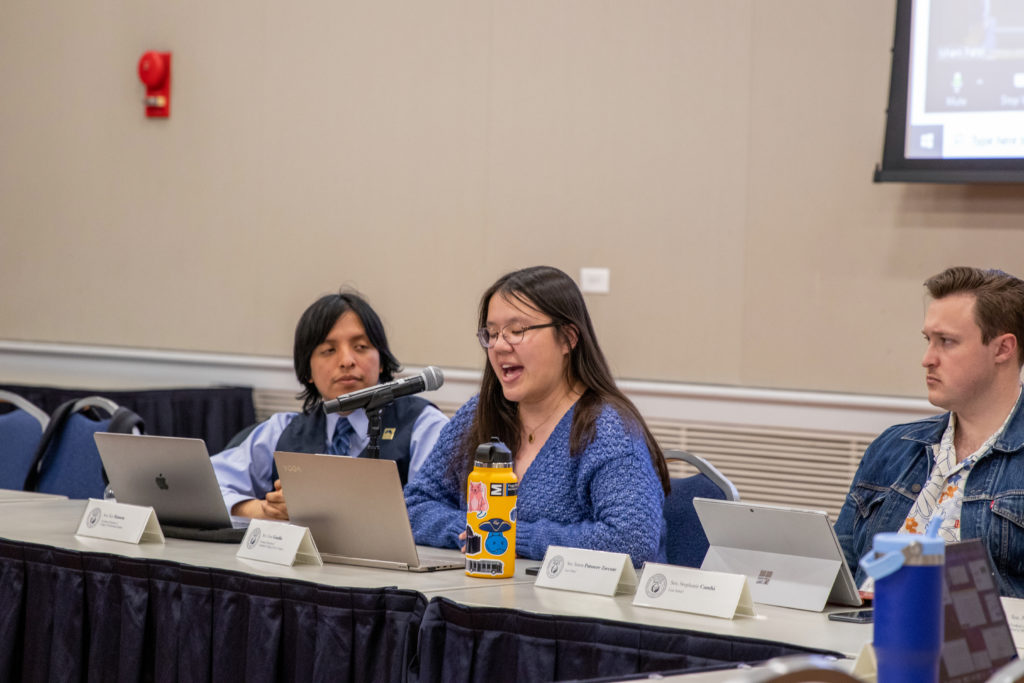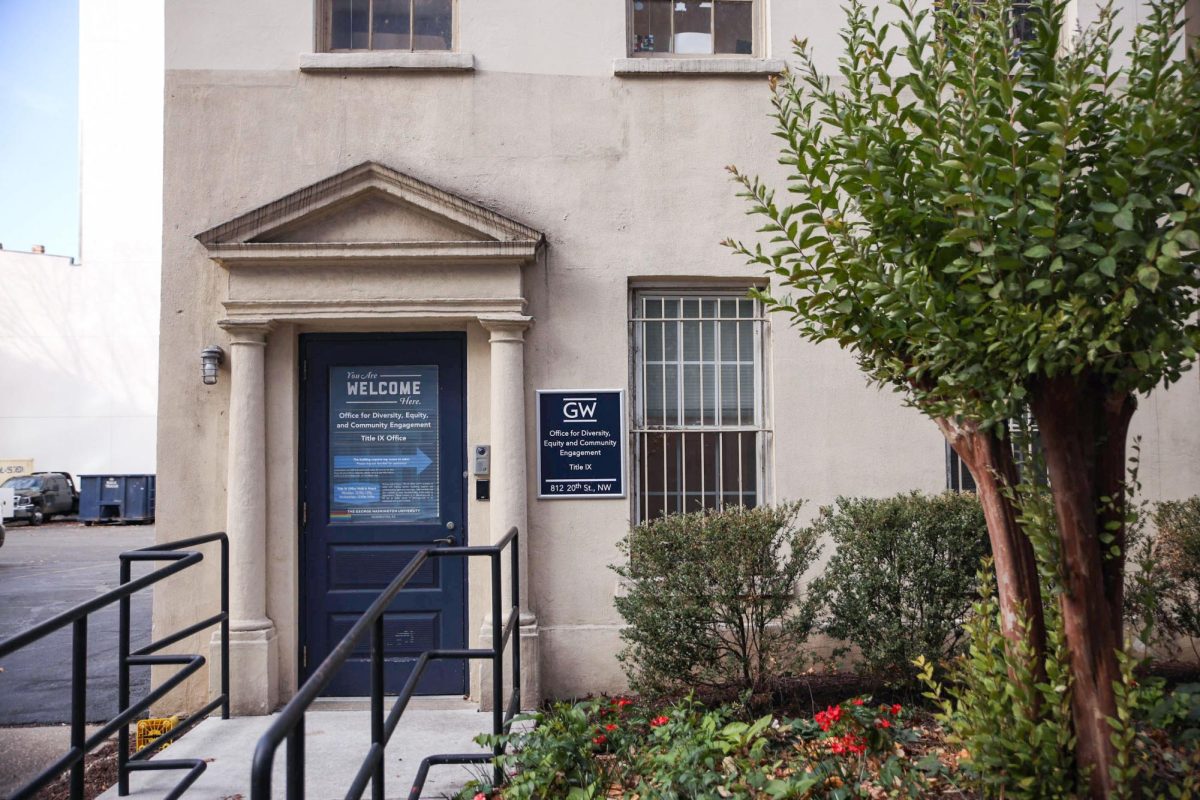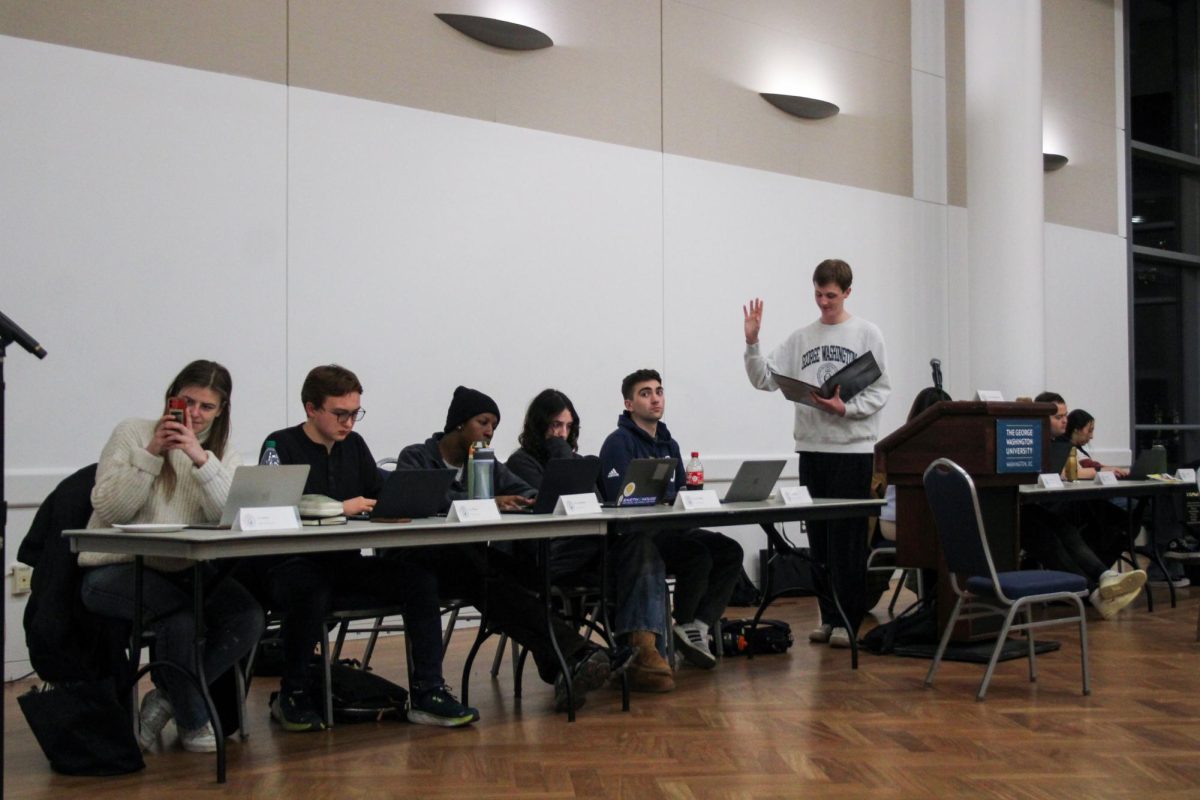The Student Association Senate unanimously passed an act Monday that allocates an additional $150,000 in funding to student organizations.
SA Sen. Linsi Goodin, CCAS-G and the chair of the Finance Committee, sponsored the Invest in Student Organization Act, which will add $100,000 in funds for durable goods – items student organizations can use multiple times over more than one year, like televisions and refrigerators. The act also increases funding for co-sponsorships, funds the SA allocates after regularly scheduled budgeting, by $50,000 from the $3,232.75 the committee currently has in their fund for the remainder of fiscal year 2023.
“We should do our best to ensure as many orgs have the capacity to purchase as many items as we have the funding for,” Goodin said.
SA Vice President Yan Xu, who co-sponsored the bill, said the Finance Committee will notify student organizations via email and social media about how to apply for the funding. Xu said the process of applying for durable goods is “exactly the same” as the co-sponsorship application, which requires student organizations attach and provide supporting documents that indicate which items they want to purchase for SA reimbursement.
The senate also unanimously approved the Student Organization Storage Space Management Act, which calls on the Office of Student Life to audit, reorganize and expand storage rooms and lockers for student organization materials. Student organizations can apply for storage space in locations like the University Student Center, Shenkman and South halls.
SA Sen. Daniel Galgano, U-at-Large, and a former Hatchet editor who sponsored the bill, said the act highlights the “unusable” state of student organizations’ storage system and recommends how officials can better structure the space. He said the act provides recommendations for the University, including utilizing existing storage space, establishing a dispute resolution and appeals process and reassessing the demand for storage space.
The resolution also requests the Office of Student Life conduct “regular walkthroughs” to ensure storage lockers are locked and accessible.
“This piece of legislation is meant to call attention to the current borderline unusable state of GW’s storage system for registered student organizations,” Galgano said.
Galgano said he has observed multiple overloaded rooms as well as unlocked and unnumbered lockers. He said the Office of Student Life has previously assigned multiple student organizations the same locker because their computer system is allegedly outdated, causing confusion and disorganization among students.
Galgano called on officials to reorganize the student organization’s storage space because they reorganized the student organization office space last summer.
“I hope that in passing this legislation, the Student Association can prompt the Office of Student Life to expand, reorganize and streamline the student organization storage system and application process in a similar way it did over the summer semester for student organization office space,” he said.
SA President Christian Zidouemba submitted a report that states that officials will undertake “major changes” over the summer to ensure Safe Ride is “easier, quicker and more accessible” to students. He also said more than eight students have applied to fill the five vacancies in the Student Court in the next academic year.
University spokesperson Julia Metjian said “additional improvements” for Safe Ride are “underway” in a statement late last month.
“A new app with improved features and functionality is expected to be unveiled by the fall semester, which will serve as a tool to continue to provide community members with an optimal Safe Ride experience,” Metjian said.
Xu also said the Diversity Program Review team has finished drafting the student portion of its final report, and members are planning to meet with students to discuss the review’s recommendations later this month. Officials launched a diversity, equity and inclusion climate survey last April and found that about half of survey respondents reported negative treatment based on their identities.
Hannah Marr and Erika Filter contributed reporting.











